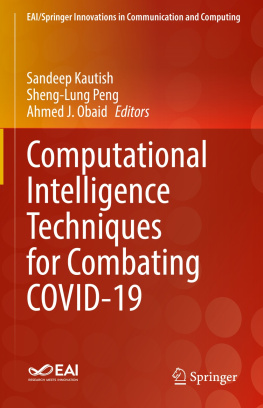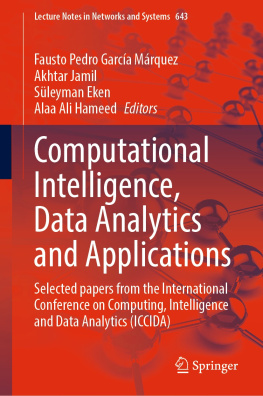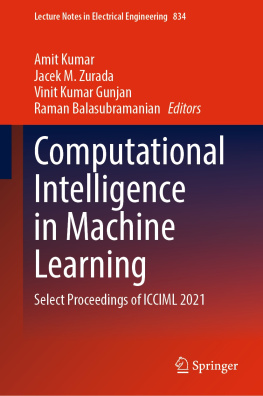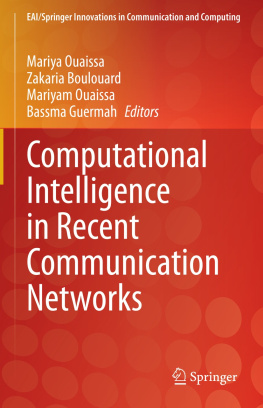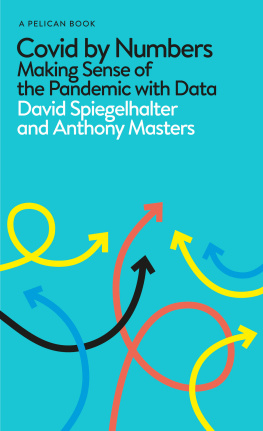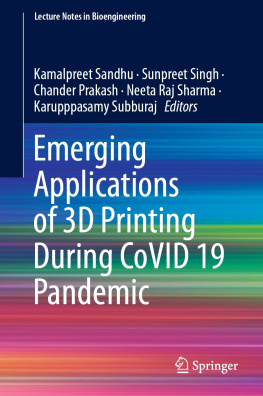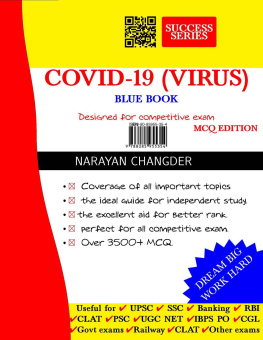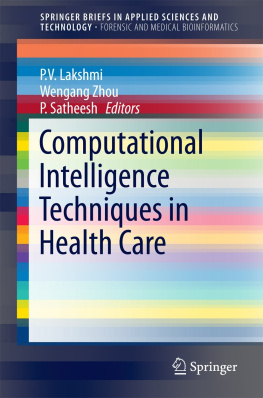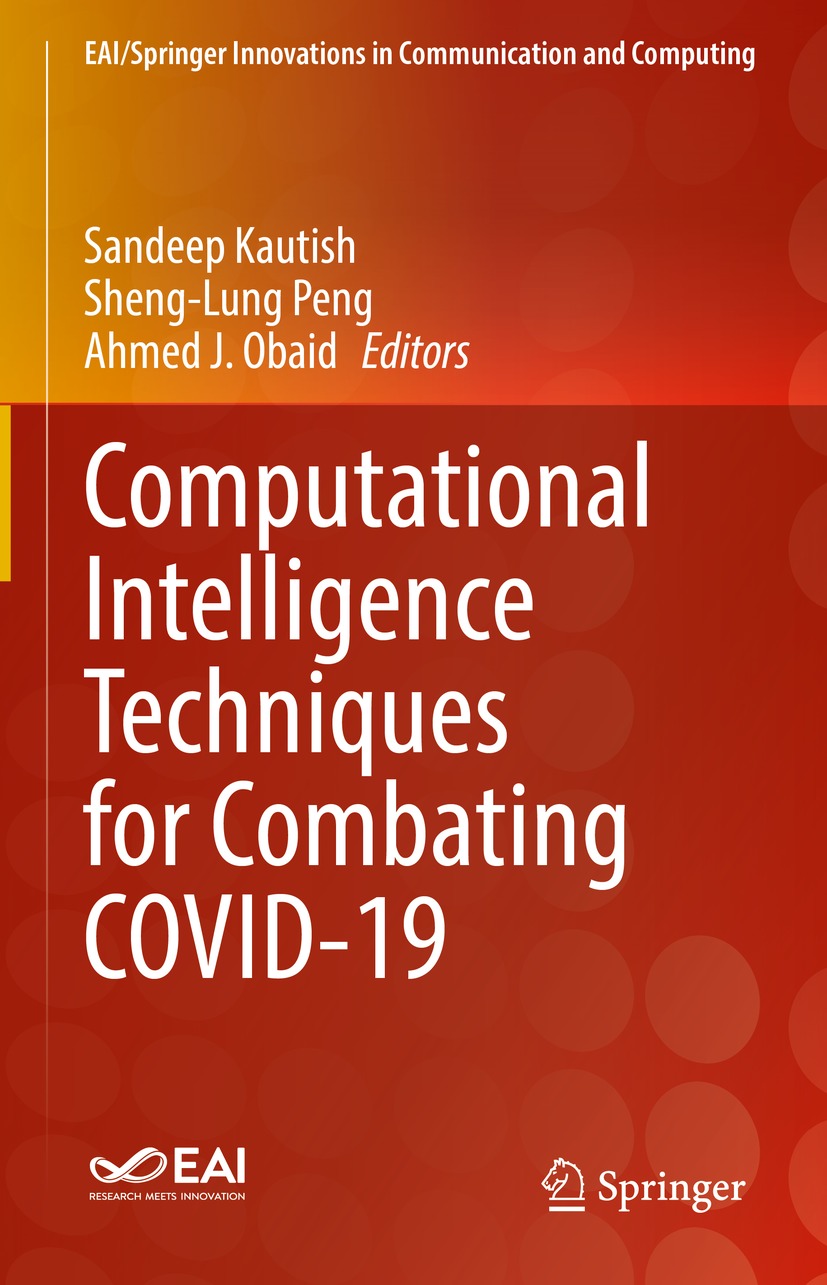EAI/Springer Innovations in Communication and Computing
Series Editor
Imrich Chlamtac
European Alliance for Innovation, Ghent, Belgium
Editors Note
The impact of information technologies is creating a new world yet not fully understood. The extent and speed of economic, life style and social changes already perceived in everyday life is hard to estimate without understanding the technological driving forces behind it. This series presents contributed volumes featuring the latest research and development in the various information engineering technologies that play a key role in this process.
The range of topics, focusing primarily on communications and computing engineering include, but are not limited to, wireless networks; mobile communication; design and learning; gaming; interaction; e-health and pervasive healthcare; energy management; smart grids; internet of things; cognitive radio networks; computation; cloud computing; ubiquitous connectivity, and in mode general smart living, smart cities, Internet of Things and more. The series publishes a combination of expanded papers selected from hosted and sponsored European Alliance for Innovation (EAI) conferences that present cutting edge, global research as well as provide new perspectives on traditional related engineering fields. This content, complemented with open calls for contribution of book titles and individual chapters, together maintain Springers and EAIs high standards of academic excellence. The audience for the books consists of researchers, industry professionals, advanced level students as well as practitioners in related fields of activity include information and communication specialists, security experts, economists, urban planners, doctors, and in general representatives in all those walks of life affected ad contributing to the information revolution.
Indexing: This series is indexed in Scopus, Ei Compendex, and zbMATH.
About EAI
EAI is a grassroots member organization initiated through cooperation between businesses, public, private and government organizations to address the global challenges of Europes future competitiveness and link the European Research community with its counterparts around the globe. EAI reaches out to hundreds of thousands of individual subscribers on all continents and collaborates with an institutional member base including Fortune 500 companies, government organizations, and educational institutions, provide a free research and innovation platform.
Through its open free membership model EAI promotes a new research and innovation culture based on collaboration, connectivity and recognition of excellence by community.
More information about this series at http://www.springer.com/series/15427
Editors
Sandeep Kautish , Sheng-Lung Peng and Ahmed J. Obaid
Computational Intelligence Techniques for Combating COVID-19
1st ed. 2021

Logo of the publisher

Logo of the publisher
Editors
Sandeep Kautish
LBEF Campus, Kathmandu Nepal; (In Academic Collaboration with Asia Pacific University of Technology & Innovation), Kuala Lumpur, Malaysia
Sheng-Lung Peng
Taoyuan Campus, National Taipei University of Business, Taoyuan, Taiwan
Ahmed J. Obaid
Faculty of Computer Science and Mathematics, Department of Computer Science, University of Kufa, Najaf, Iraq
ISSN 2522-8595 e-ISSN 2522-8609
EAI/Springer Innovations in Communication and Computing
ISBN 978-3-030-68935-3 e-ISBN 978-3-030-68936-0
https://doi.org/10.1007/978-3-030-68936-0
Springer Nature Switzerland AG 2021
This work is subject to copyright. All rights are reserved by the Publisher, whether the whole or part of the material is concerned, specifically the rights of translation, reprinting, reuse of illustrations, recitation, broadcasting, reproduction on microfilms or in any other physical way, and transmission or information storage and retrieval, electronic adaptation, computer software, or by similar or dissimilar methodology now known or hereafter developed.
The use of general descriptive names, registered names, trademarks, service marks, etc. in this publication does not imply, even in the absence of a specific statement, that such names are exempt from the relevant protective laws and regulations and therefore free for general use.
The publisher, the authors and the editors are safe to assume that the advice and information in this book are believed to be true and accurate at the date of publication. Neither the publisher nor the authors or the editors give a warranty, expressed or implied, with respect to the material contained herein or for any errors or omissions that may have been made. The publisher remains neutral with regard to jurisdictional claims in published maps and institutional affiliations.
This Springer imprint is published by the registered company Springer Nature Switzerland AG
The registered company address is: Gewerbestrasse 11, 6330 Cham, Switzerland
Preface
Since the beginning of year 2020, human society has been going through a very tough phase globally, that is, an unexpected medical emergency where more than 200 countries of the world have been affected by the coronavirus (COVID-19). As of November 25, 2020, 1.4 million people have lost their lives across the world due to the COVID-19 outbreak. The death toll is still climbing. The USA, despite being the most developed country in the world, has already recorded the deaths of more than 260,000 people, which clearly shows that the most developed countries are also unable to control the COVID-19 pandemic. The coronavirus, which is a highly infectious and pathogenic virus, originated from Wuhan in December 2019, travelled the whole of China and spread around the world within 3 months of its origination. Genome analysis of the virus revealed that bats could be the possible reservoirs, which caused the spread of COVID-19.
Artificial intelligence (AI) and machine learning (ML) techniques have a great potential to serve as prevailing tools for combating COVID-19. AI, along with machine learning, computer vision applications, augmented reality and virtual reality (AR and VR) techniques, deep learning, and natural language processing , is capable of creating data science models and algorithms for pattern recognition, clarification, and accurate predictions in genome patterns of COVID-19. These functions can guide accurate recognitions, diagnosis patterns, predictions, and treatment of COVID-19 infections.
The primary aim of this book is to foster the need for extensive computational researches for combating COVID-19 in terms of adaptive computational modeling, synthesis, and analysis of biological systems using evolutionary methods and algorithms of computational intelligence. The book covers all computational approaches, that is, in silico methods ranging from all allied fields of data sciences and computational intelligenceoriented techniques. This book attempts to assert all relevant research, that is, key themes, complex adaptive systems, metrics, and paradigms, dedicated towards COVID-19, enabled with evolutionary methods of computational sciences. Also, this book lays emphasis on a digitally enabled fight back against the pandemic. In short, this book is a state-of-the-art document on the latest research in the field of computational intelligence and computational biological approaches related to combating COVID-19.

